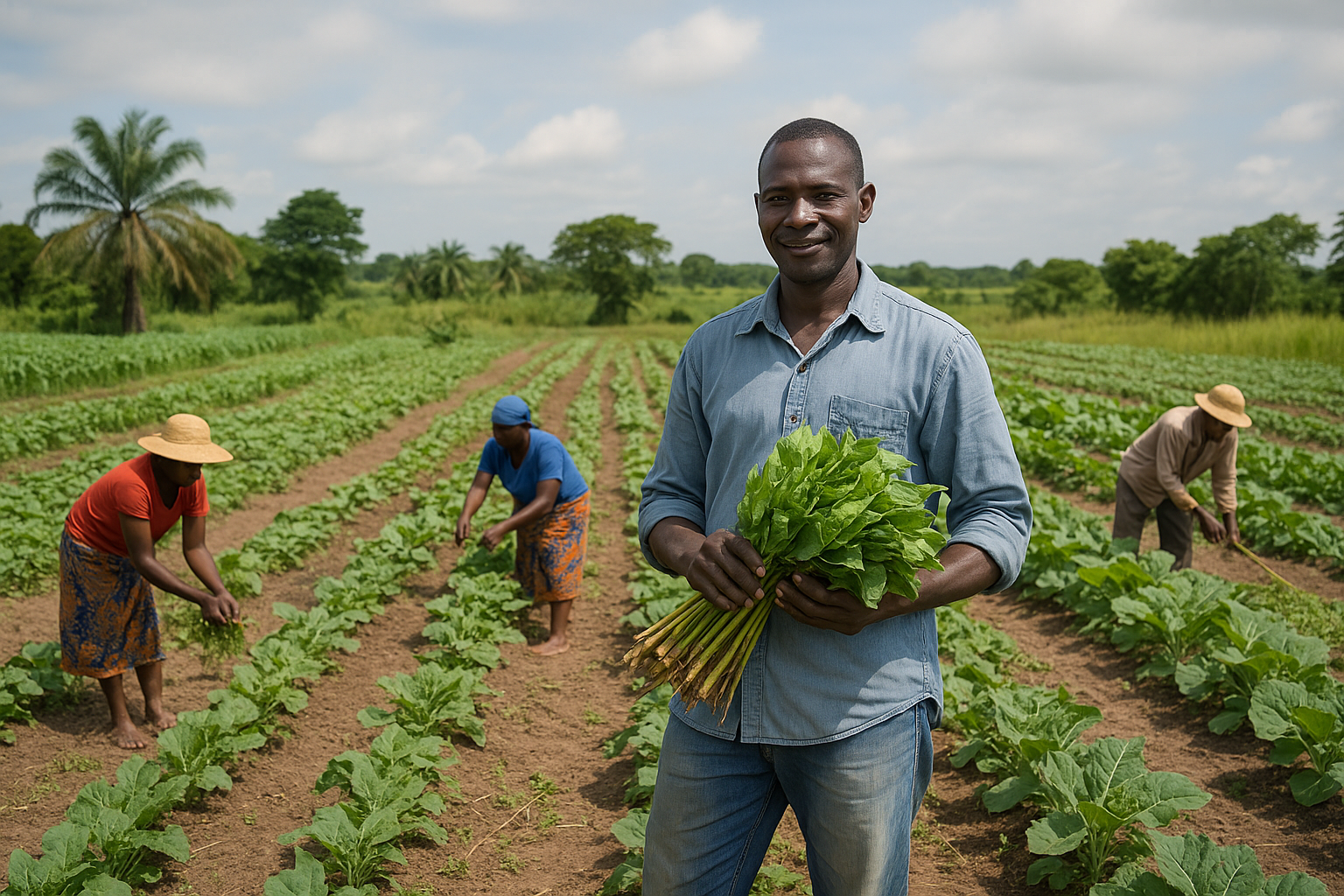IFAD President Reaffirms Support for Mexico’s Rural, Climate-Resilient Growth
“Mexico and IFAD have been long-time partners and share a vision of building dynamic rural economies that generate employment, innovation, and prosperity,” said Lario.

- Country:
- Mexico
The President of the United Nations’ International Fund for Agricultural Development (IFAD), Álvaro Lario, arrived in Mexico today to reaffirm the UN agency’s long-standing partnership with the country and deepen its support for rural development, food sovereignty, and climate resilience. The visit marks a consolidation of 45 years of cooperation between IFAD and Mexico, during which more than half a million rural residents have benefitted from IFAD-financed initiatives.
During his visit, Lario will engage in high-level meetings with senior Mexican government officials, including Alicia Bárcena, Secretary of Environment and Natural Resources, and Julio Berdegué, Secretary of Agriculture and Rural Development. These meetings aim to align IFAD’s global strategy with the Mexican government’s Plan Mexico, a nationwide push to increase sustainable food production and enhance the welfare of small-scale producers.
“Mexico and IFAD have been long-time partners and share a vision of building dynamic rural economies that generate employment, innovation, and prosperity,” said Lario. “We agree on the urgency of addressing global challenges such as climate adaptation and food insecurity, and the conviction that rural development must incorporate all population groups, with a particular focus on women and Indigenous peoples.”
Supporting the Sheinbaum Administration’s Rural Vision
Under the administration of President Claudia Sheinbaum, Mexico is prioritizing rural revitalization to ensure stable food supply, reduce poverty, and empower smallholder farmers. Programs such as Cosechando Soberanía are at the heart of this effort, offering farmers access to finance, insurance, and markets for key staple crops including corn, beans, wheat, rice, and coffee.
Lario praised these initiatives, adding,
“Investing in small-scale producers and sustainable food systems is key to moving towards greater food sovereignty. We are committed to supporting the Government of Mexico’s efforts to strengthen local agricultural production and facilitate access to markets for producers.”
IFAD’s Flagship Projects: Balsas Basin and Agribiomex
IFAD is currently supporting two flagship projects in Mexico that reflect its priorities of climate resilience, biodiversity conservation, and economic empowerment:
-
The Balsas Basin Project: Operating in eight states with high social and environmental vulnerability, this project supports forest-based rural economies. It promotes value-added processing, storage, and marketing of products to generate income and employment. Climate change mitigation is achieved through watershed restoration, community firefighting brigades, and environmental services payments.
-
The Agribiomex Project: Led by Mexico’s Ministry of Agriculture, this initiative targets biodiversity conservation while advancing sustainable farming practices on up to 900,000 hectares. A key goal is to prevent deforestation linked to cattle ranching and agricultural expansion. Agribiomex also works to embed sustainability into the core of food production across ecologically sensitive areas.
Both projects are also trailblazers in financial innovation. The Balsas Basin is the first Mexican federal project to receive Green Climate Fund support, while Agribiomex is the first executed by the Ministry of Agriculture to receive financing from the Global Environment Facility. These successes underscore IFAD’s ability to attract climate financing and scale up its impact.
A Model of Global Partnership and Local Impact
Since the partnership began in 1980, IFAD and Mexico have collaborated on 12 major projects, totaling US$500 million in investment, combining IFAD funds with contributions from domestic institutions and international partners. These projects have supported job creation, income growth, environmental sustainability, and community empowerment—particularly for women and Indigenous populations.
Over the past four decades, IFAD has emerged as a key catalyst in Mexico’s rural transformation, converting every $1 in member contributions into $6 in tangible investments on the ground. Lario’s visit signals the Fund’s intent to expand this impact, aligning even more closely with Mexico’s national strategies and leveraging additional international support.
Looking Forward: Climate and Rural Equity at the Core
Lario’s visit comes at a pivotal time, as Mexico—and much of the developing world—grapples with the intertwined challenges of climate change, food insecurity, and rural inequality. IFAD’s mission in Mexico reflects a broader global strategy focused on scaling sustainable agriculture, supporting climate adaptation, and empowering marginalized rural communities.
“Our projects aim to ensure rural people are not left behind in the fight against climate change,” said Lario. “Through our partnership with Mexico, we’re building solutions that are local, sustainable, and inclusive.”
As IFAD looks to deepen its impact in Latin America, the Fund’s work in Mexico stands out as a model for collaboration between global institutions and national governments to drive meaningful change in rural areas—one that other nations may seek to emulate in the coming years.










